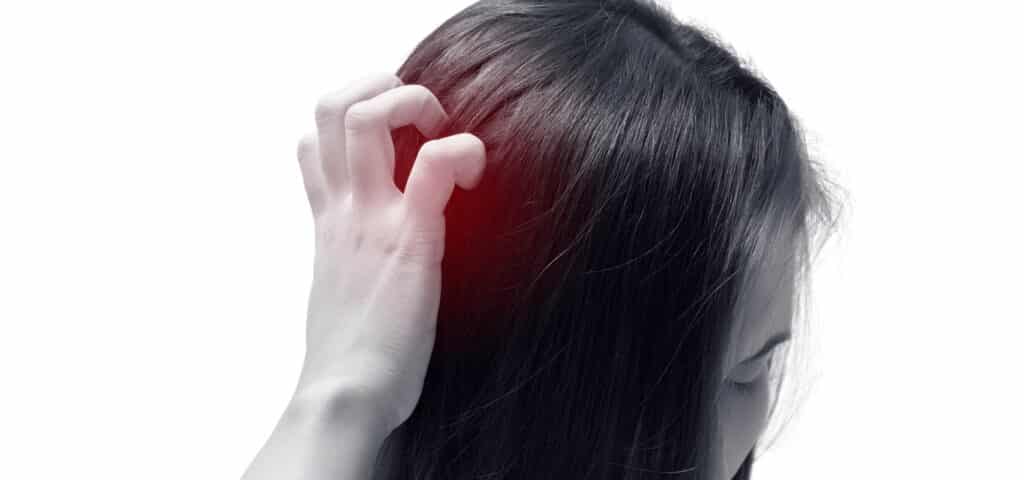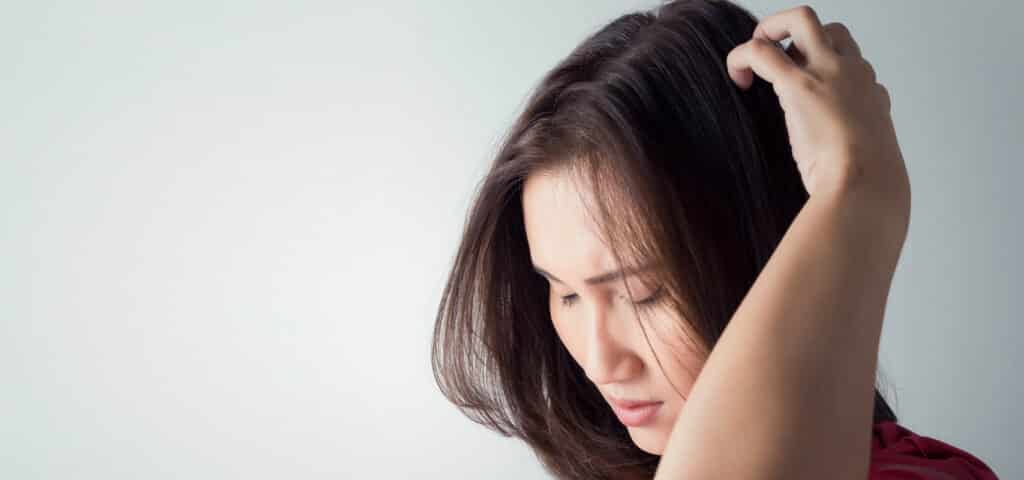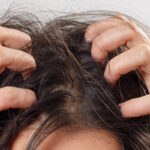Trichodynia, also known as hair pain, is a condition that can be extremely bothersome for many people. Although often underestimated or ignored, trichodynia significantly affects daily life, causing discomfort and reducing self-confidence. Here we explain this phenomenon, its causes, symptoms, and available treatment options.
What is trichodynia?
Hair pain (trichodynia) refers to the sensation of pain, burning, discomfort, or hypersensitivity in the scalp and hair area. Patients affected by this condition may experience intense sensations that are difficult to understand both for themselves and for those around them. This issue is not a disease but rather a symptom that may accompany various conditions and disorders.

Causes of trichodynia may include psychological factors such as stress. Increased emotional tension leads to scalp muscle tightness, which results in pain. Patients with depression often experience somatic symptoms, including headaches or trichodynia. Other causes include dermatological problems. Autoimmune diseases such as psoriasis cause inflammation and scalp itching, while atopic dermatitis leads to irritation and discomfort.
Mechanical factors may also trigger trichodynia, such as tight hairstyles. Frequently wearing tight ponytails, braids, or using heavy accessories can cause so-called traction pain in the scalp. Excessive use of styling tools (straighteners, curling irons) also causes hair damage and scalp irritation. Hormonal imbalances during menstruation, pregnancy, or menopause can additionally affect scalp sensitivity.
What are the symptoms of trichodynia?
Hair follicle pain can manifest in different ways, and symptoms vary depending on the patient. The most common include:
- pain and discomfort – sensations in the scalp ranging from mild to severe, stabbing, burning, or throbbing,
- burning – patients often report a burning sensation on the scalp, either constant or episodic,
- itching – leading to unpleasant discomfort,
- hypersensitivity – the scalp becomes sensitive to touch, making brushing, washing, or wearing hats painful,
- tightness – a feeling of scalp tension or pressure, especially intense during stressful situations,
- headaches – trichodynia may coexist with tension or stress-related headaches,
- hair loss – in some cases, trichodynia is linked with hair shedding, which worsens discomfort,
- sleep disturbances – pain may lead to sleep problems, further affecting overall health.
When should painful hair on the scalp be treated?
Many patients ask – what to do when my hair hurts? It is important to remember that there are clear indications for treatment. If a person experiences chronic pain, burning, or discomfort in the scalp that affects quality of life, doctors recommend appropriate therapy. Worsening trichodynia symptoms, high intensity, or the appearance of new signs such as hair loss are also reasons to start treatment.
If trichodynia coexists with other issues such as headaches, itching, or inflammation, this may point to a broader dermatological or neurological problem. Treatment is also recommended when symptoms affect sleep, leading to chronic fatigue.
Are there any contraindications to treating trichodynia?
When the scalp hurts and hair falls out, it is crucial to see a doctor and begin proper treatment. However, some contraindications must be considered, such as:
- allergies and sensitivities – patients allergic to active substances in drugs or topical preparations should avoid these therapies,
- acute inflammation – in cases of active scalp infections or dermatitis, some therapies should be postponed to prevent worsening,
- pregnancy and breastfeeding – many drugs used for trichodynia may be contraindicated; consultation with a doctor is necessary,
- autoimmune diseases – patients must be cautious when therapies involve immunosuppressants,
- mental health disorders – patients with severe depression or psychosis require careful selection of treatment approaches.
How to treat trichodynia?
Painful hair follicles require a holistic approach that includes both physical and psychological aspects. The most common method is pharmacological therapy. For pain and discomfort, doctors may recommend analgesics such as ibuprofen or paracetamol. Some antidepressants, especially SSRIs, may help when trichodynia has a psychological basis. Inflammatory scalp conditions may be treated with topical corticosteroids or other anti-inflammatory medications.

Psychological therapies, such as cognitive-behavioral therapy, can be effective in treating trichodynia by helping patients manage stress and anxiety. Lifestyle changes are also recommended. Relaxation techniques such as meditation, yoga, and breathing exercises help reduce stress that worsens symptoms. A proper diet and supplementation support scalp and hair health.
If trichodynia is linked to other dermatological conditions, such as psoriasis or atopic dermatitis, dermatological treatment provides relief. In some cases, laser therapy may be used to reduce pain and improve scalp condition.
What are the effects of trichodynia treatment?
Treatment outcomes vary depending on individual needs, therapy methods, and underlying causes. Patients often report a significant reduction in scalp pain and discomfort, improving their quality of life. Effective pharmacological and topical treatments can ease symptoms such as hair follicle pain when touched.
Psychological therapies help manage emotions, reducing anxiety and depression. Relaxation techniques and lifestyle modifications increase patients’ ability to cope with stress and improve well-being.
When trichodynia is associated with dermatological conditions, treating those diseases improves scalp health. Additionally, reducing pain and stress helps limit hair loss, which is crucial for many patients. Relief also allows better performance in daily tasks such as work and social activities. Improved sleep quality further enhances overall health.
The effects of trichodynia treatment are important both physically and psychologically. Therapy should always be tailored to the patient’s needs and combine different methods. Regular medical consultations and support from loved ones contribute to successful outcomes. At OT.CO Clinic, we provide comprehensive care for patients struggling with trichodynia!





Mint oil